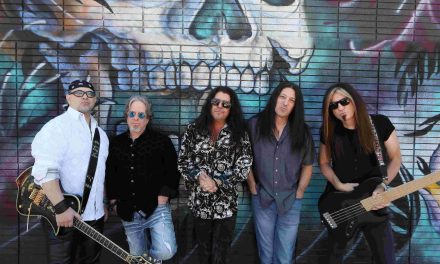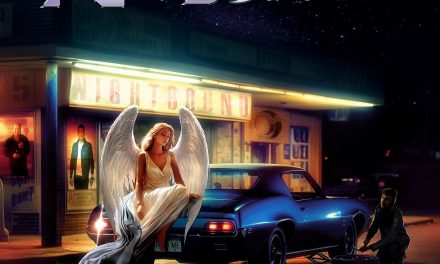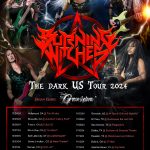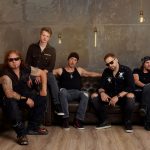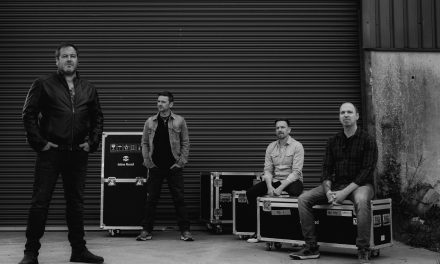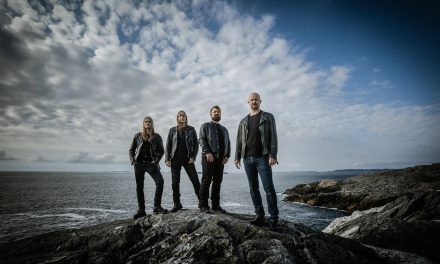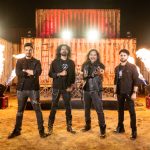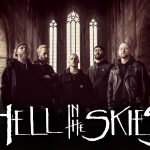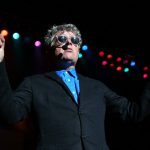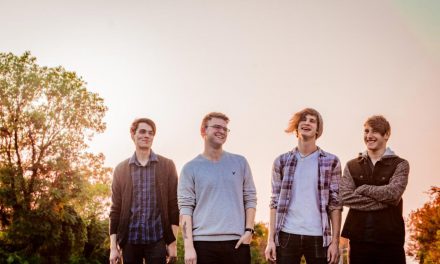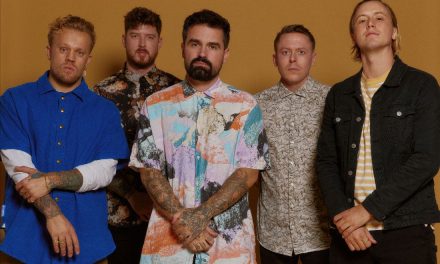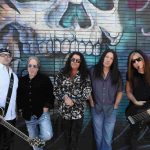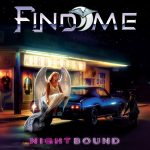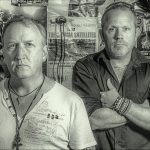
On The Firing Line with Molly Hatchet
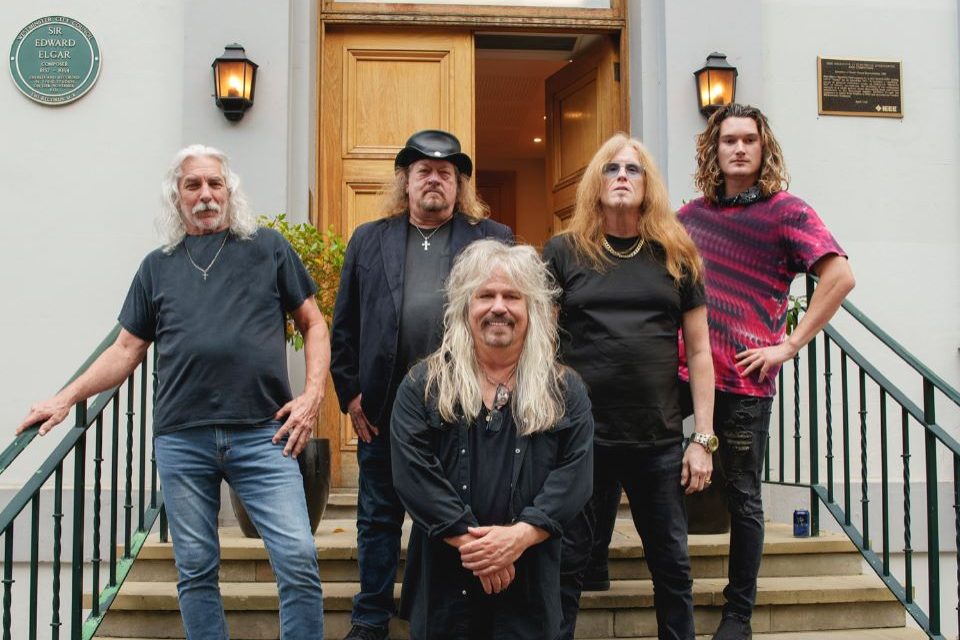
 On The Firing Line with Molly Hatchet
On The Firing Line with Molly Hatchet
After a thirteen year wait, southern rock legends Molly Hatchet present Firing Line, a brand-new song recorded at the famous Abbey Road Studios in London, UK. The song was produced by Bobby Ingram of Molly Hatchet, engineered by Chris Bolster (Paul McCartney, Foo Fighters, Elton John) and mastered by Lucy Launder and Alex Wharton (Paul McCartney, Rolling Stones). And on Saturday for this Memorial Day weekend, Molly Hatchet will be playing the L.A. County Fair alongside 38 Special and the Outlaws! It’s a Southern rock extravaganza not to be missed!
Highwire Daze recently interviewed longtime guitarist Bobby Ingram to discuss Firing Line and news of an upcoming album, their show at the L.A. County Fair, past albums such as Lightning Strikes Twice and Warriors of the Rainbow Bridge, and more…
We are here with Bobby Ingram from Molly Hatchet. Okay, first of all, what are you looking forward to the most about your upcoming show at the LA County Fair in Pomona this weekend?
We’re looking for a huge event. We’re on the show with a 38 Special and our friends in The Outlaws and we’re going to have a great time. It’s a walk through Molly Hatchet history and we’re going to do as much as we possibly can within our time slot. So from the very first album in 1978 all the way up to the new album that’s not out yet, it’s coming out in the fall, but we’re going to be doing the single from that new album. And the new single is called Firing Line.
Let’s talk about Firing Line. Is there any overall story or concept behind the single Firing Line? What was the inspiration behind it?
Well, that song came up, we wanted to write about what humanity’s pretty much stood for all along in a certain element. And that’s about doing the right thing and defending people that have been wrongfully accused. And we see a lot of that going on our televisions every day throughout life, in our daily lives. And we wanted to make a statement. We wanted to make a statement about defending yourself, defending your honor and your integrity. And that’s what Firing Line is all about, is being in the middle of the Firing Line and holding your own.
Is there any other music on the horizon? You mentioned a new album.
Yes, there is a new album coming out. It’s going to be out in the fall. We recorded it at Abbey Road Studio in London. We wanted to find a studio. We’ve been bouncing around from studios for the past couple years, and we had the shutdown happened to everybody. But we continued writing all during that time. And we had all these songs, we said, well, it’s time to put a record out. But I wanted to put it out in the fundamental way and to go back and to do it like we used to do albums. And that’s where we found the most amazing studio and we’ve all heard about it. It’s called Abbey Road. Lucky enough to go into studio two at Abbey Road. And that’s where the Beatles did 90 to 95% of all their hits and record pretty much on the same microphones in the same room. It was pretty amazing.
Our engineer Chris Bolster, who has been with us from the first note of this new album. And he’s actually in mixing right now over in England at Abbey Road. He’s been with us all the way through it. And he’s just been an amazing person to work with. He’s not only done Paul McCartney and Elton John, he’s done the Foo Fighters, Maroon 5, you name it, he’s done all these fantastic groups that have come through the studio. And we wanted to get back to our foundational roots with the sonic impression of the band, with the sound of it. That’s why Abbey Road really went with what we were wanting to achieve with it. I’s all about analog. It’s all about the way that we used to record back in the 70s and then pretty much from the 80s, 90s on, here comes all the digital stuff. Nothing wrong with it. It is great in its own environment. But the environment that I wanted to go into for this album is analog. I wanted to get back to the basics and record with an analog console, get in the room and everybody play live and record it. And that’s what we did.
Nice. And at a legendary studio too. So that’s going to be awesome. I can’t wait to hear this. It’s been a while Bobby.
Yeah, right. I know everybody keeps saying that. Well, what took you so long? We came out with the Justice album and we were touring and touring and we lost Dave Hlubek from the band. That was in ’17 and then in ’19, Phil McCormack passed away. So as soon as that happened, here comes the shutdown with the pandemic. So we had a lot of hurdles to get over and we did. It was the good Lord above and it was our work ethics. And we wanted to stay true to the music and keep recording.
Molly Hatchet is not a tribute band, that’s for sure. This is the natural evolution of Molly Hatchet, 45 years later. Now I’ve been into the band longer than anybody with us or that has passed on. And I wouldn’t change that for anything. I’ve loved every second of it. I still love what I do every night on stage, every note in the studio. Every night I write a song or day or month or whatever. I love what I do still after all these years. So here it is all this time later and still enjoying it.

He’s like half our age. He had his own band, and I got a phone call a year and a half ago. And we were just talking and his group, he was looking for an opening slot to open up for Molly Hatchet on some shows or some tours. And I said, well, sure. And we were having that transition period where we would use a couple different vocals that would come into the group touring wise. We did a live album with a singer and then we did more touring with another singer and then when Parker called me, I mean, we hit it off from the first phone call and it was pretty amazing. His story about how when he was a kid, his father was taking to school and then of all things, he would listen to the Molly Hatchett Greatest Hits album. So, I mean, it put things in perspective, and he loved Southern rock and roll. So, the more and more we talked, I mean, he came over, we fired up the guitar and he got the microphone, and we went through the whole set. He was standing there in barefoot in his short pants and I had a guitar halfway strapped on me. I went, okay, well, let’s crank it up. And he started singing and it was like magic. And then when we saw him on stage, we couldn’t believe it. And that was the spark that we were looking for in the group. And coming back after all these years and to having that magic come back again, that meant a lot to us. So I said, okay, we’re going to do an album now. And that’s how it formulated with Parker.
You’ve had amazing vocalists in the band in the past. So Parker has a lot to live up to, that’s for sure, but he sounds good.
Yeah, Parker has been an amazing guy to work with and he wants to be here. He loves Southern Rock and Roll, he loves Molly Hatchet, and he wants to be in this band. And that to me, loyalty and that true spirit of wanting to keep the music alive, the tradition and the spirit and the legacy and keep all that going, that means everything to me. And that’s what we do. We keep all that going. And I’ll have to say here, if it wasn’t for the six original Molly Hatchet members that started this, we wouldn’t be here now, but we’re carrying on that legacy because we believe that the music is all important, and we want people to keep experiencing that year after year. We want to keep writing new music, putting out new albums, and the continuation of the legacy tree. So that’s why we’re doing what we’re doing.
When you look back on that first Molly Hatchet album, you were on Lightning Strikes Twice. What do you think of that particular album now in retrospect?
What was it like during that time joining the band and do you have fond memories of that album?
Bobby: Well, I had my solo project during that time. Of course, this was after the Danny Joe Brown band. Danny and I had already been turned all around in the major circuits. I had my solo project at the time, and Danny called me, contacted me a couple times, and came over to my studio. And he said, Bobby, we really want you to join Molly Hatchet, since 1975, and I said, Danny, I want to so come on down and rehearse, to Orlando. And I went in there, and this is the true story. I was first to come in not to take somebody’s place, but to fill a position who was getting ready not to be there with one of the guitar players. And I went down there and I said, listen, guys, I got my solo project, I’ve already got a record deal with CBS, I want to keep that going. And then a couple months later, Danny called me again said, “Bobby, come down, man, we need you to come in.” But it was for another guitar player in the band. Now, I don’t want to name names, but you can imagine who it would be. And I said, listen, I don’t know what’s happening here. But I love all you guys, just figure out what you want to do. And about a few months later, Danny came over to the rehearsal hall that was on Justina Road and he said, Bobby, we want you to come out on this tour with us. And so I said, okay. So I went out and that was to cover Dave Hlubek’s parts, and we played together, and it wasn’t five minutes into the set, we’re all looking around at each other going, wow, this really feels good.
And we just carried it on. We continued on and later on, I guess maybe almost 8 years, 9 years into that, I got Dave back into the band. So, I pretty much came in to take his part, his position in the group. And then I pulled him back in. And I think that it should have never gone a different way. So, I’m really happy about him rejoining the band in the middle 90s and me and him being able to play together and him being in the band all the way up until he passed on. So, during that time there was a lot of ups and downs, not on my side, but I think in the Hatchet camp, but it was ready to get put back together. So, when I came in, John Galvin and I said, okay, well, we already wrote, I don’t know how many songs with the Danny Joe Brown band. I said, now we’re together writing songs now for the new Molly Hatchet record. And I’ve got a couple songs, outside songs. And I think one was from Paul Stanley and Desmond Child on that album, I believe. There’s Lightning Strikes Twice and John and I did you most of the writing for that album along with Duane and Danny of course. And we had a great time. It was a magnificent new start with the group. And we did that. But then right after that album, nobody wanted to carry the group on any further except Danny and I. So Danny and I stayed together and it was like old times again, like back in 1975, back in 1980, 81. Every 10 years, it’s like it was repeating itself. And we carried it on. And Danny and I were by ourselves. And we put different members in the group because the other members didn’t want to do it at that particular time. But we did. We thought the music was more important. We thought it was real important to keep it out there. And here it is now, 45 years later, and the legend lives on, and the tradition and spirit still lives on. So there’s been some ups and downs along the way to your original question. What was it like during that time leading up to now? There’s been ups and downs. We’ve had member changes. We’ve had generational changes in the culture. We’ve had a lot of technological change. Technology has changed all the way from the LPs and the 45s all the way through the cassettes and eight tracks and MP3s and MP20s and whatever it is out there now. That’s why, again, going back to Abbey Road Studios, going there and record a new album means so much to us right now.

It still feels and means the same thing to me. I lost my wife during the production of that album. Stephanie was like the seventh member of this group, and it was a real tough time. But I did it and I dedicated the entire record to her and her memory. And from then until now, it’s been nothing but working and more working and staying busy. And yeah, so that’s what that album means to me. It was a monumental life-changing event that took place in the middle of the recording of that album. And I know that me and you spoke about that time also.
Yes, we did. To me that album means a lot to me as well. It’s probably one of my favorite Molly Hatchett albums.
Well, it’s got such deep meaning in it. And Stephanie actually heard the entire record, because I was like right at the end of the album and she heard it and Rainbow Bridge was her favorite song on the whole record. And so that’s why I titled it in that respect also.
Are you currently involved in any other bands or projects outside of Molly Hatchet?
I haven’t been since the day I started. And I will not, as long as I’m in here, and I’m the sole trademark owner of the name. And I don’t see nor plan to do anything else, but to give my thousand percent interest and attention and care and songwriting ability, touring abilities and responsibilities to Molly Hatchet and the legacy. I can’t see me going out. I never even go out and jam with anybody. I think the last time I jammed with somebody, we were playing a show, it was in Texas, and a dear friend of mine came up and played on the stage, Gary Richrath from REO, and it was right before he passed away and we played, oh man, we jammed probably 45 minutes, or an hour and it was just a magical time with Gary. But I never go out. And that was when we were actually playing, we were doing the headlining set that night. But I don’t go out and jam, I just don’t do that. All my interests are with Molly Hatchet. I stay in this little bubble, this little square. And I love it. I love my own reality with Molly Hatchet. I’ve got everything I need right here. And the most important thing is the fan base and the music. And if I have those two elements together, then going out and playing shows and making new albums, I’m totally satisfied. I like my own reality and Molly Hatchet. I don’t seek anything else. And if anything else would come my way, I wouldn’t even pay it much mind. So that’s where I’m at in my being and my head and my thoughts about the continuation of the band and me being in here. Only the good Lord above will take me out of this group. He’s our Lord and Savior and it’s all up to his will. But I want to continue it as long as I’m on the planet. That’s for sure.
Do you have any messages for Molly Hatchet fans who are reading this right now?
Yes, for all the fans, the veteran fans, the new fans, and the fans that we would like to create, we want to thank everybody for staying with us through all the generation changes and through all the albums and all the touring. We want to thank everyone for sticking by our sides for all these decades. And like I said, the music is all important and the fans are all important. And we want to keep that bond between us both going for as long as possible. And thank you for all your support and dedication.
MOLLY HATCHET are:
Bobby Ingram – Lead Guitars
John Galvin – Keyboards
Tim Lindsey – Bass
Shawn Beamer – Drums
Parker Lee – Lead Vocals
(Interview by Ken Morton)
Molly Hatchet on Instagram

